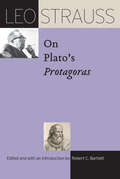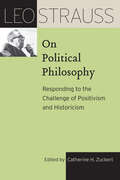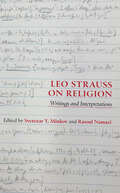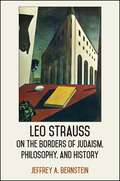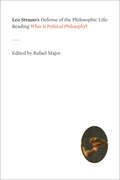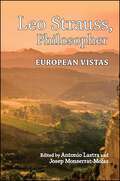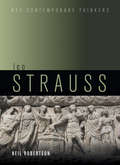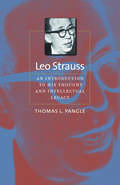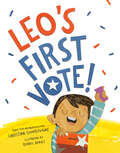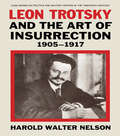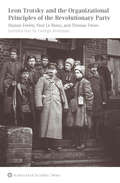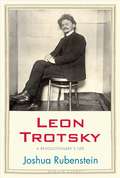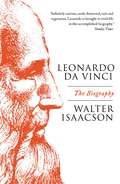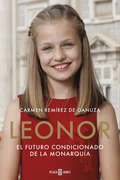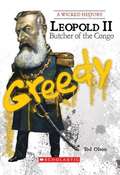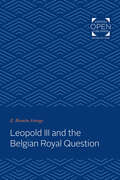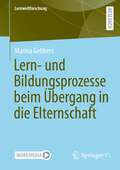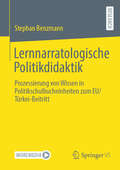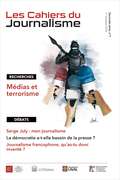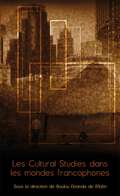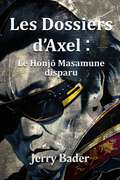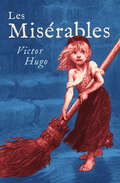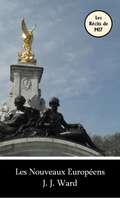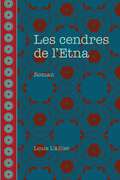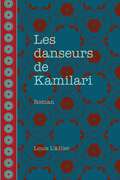- Table View
- List View
Leo Strauss on Plato’s Protagoras (The Leo Strauss Transcript Series)
by Leo StraussA transcript of Leo Strauss’s key seminars on Plato’s Protagoras. This book offers a transcript of Strauss’s seminar on Plato’s Protagoras taught at the University of Chicago in the spring quarter of 1965, edited and introduced by renowned scholar Robert C. Bartlett. These lectures have several important features. Unlike his published writings, they are less dense and more conversational. Additionally, while Strauss regarded himself as a Platonist and published some work on Plato, he published little on individual dialogues. In these lectures Strauss treats many of the great Platonic and Straussian themes: the difference between the Socratic political science or art and the Sophistic political science or art of Protagoras; the character and teachability of virtue, its relation to knowledge, and the relations among the virtues, courage, justice, moderation, and wisdom; the good and the pleasant; frankness and concealment; the role of myth; and the relation between freedom of thought and freedom of speech. In these lectures, Strauss examines Protagoras and the sophists, providing a detailed discussion of Protagoras as it relates to Plato’s other dialogues and the work of modern thinkers. This book should be of special interest to students both of Plato and of Strauss.
Leo Strauss on Political Philosophy: Responding to the Challenge of Positivism and Historicism (The Leo Strauss Transcript Series)
by Catherine H. Zuckert Leo StraussLeo Strauss is known primarily for reviving classical political philosophy through careful analyses of works by ancient thinkers. As with his published writings, Strauss’s seminars devoted to specific philosophers were notoriously dense, accessible only to graduate students and scholars with a good command of the subject. In 1965, however, Strauss offered an introductory course on political philosophy at the University of Chicago. Using a conversational style, he sought to make political philosophy, as well as his own ideas and methods, understandable to those with little background on the subject. Leo Strauss on Political Philosophy brings together the lectures that comprise Strauss’s “Introduction to Political Philosophy.” Strauss begins by emphasizing the importance of political philosophy in determining the common good of society and critically examining the two most powerful contemporary challenges to the possibility of using political theory to learn about and develop the best political order: positivism and historicism. In seeking the common good, classical political philosophers like Plato and Aristotle did not distinguish between political philosophy and political science. Today, however, political philosophy must contend with the contemporary belief that it is impossible to know what the good society really is. Strauss emphasizes the need to study the history of political philosophy to see whether the changes in the understanding of nature and conceptions of justice that gradually led people to believe that it is not possible to determine what the best political society is are either necessary or valid. In doing so, he ranges across the entire history of political philosophy, providing a valuable, thematically coherent foundation, including explications of many canonical thinkers, such as Auguste Comte and Immanuel Kant, about whom Strauss did not write extensively in his published writings.
Leo Strauss on Religion: Writings and Interpretations (SUNY series in the Thought and Legacy of Leo Strauss)
by Svetozar Y. Minkov Rasoul NamaziIntriguing unpublished manuscripts by Leo Strauss, which explore the intricate relationship between religion, philosophy, and politics, accompanied by fourteen interpretative essays.Addressing the central theme of his work-the complex relationship between religion, philosophy, and politics-the twelve newly available transcripts included in Leo Strauss on Religion offer unprecedented insights into Leo Strauss's thoughts on previously unexplored subjects. Essential for both avid readers and newcomers, this collection unveils sharper formulations and frank discussions, providing a rare peek into the ambiguous aspects of Strauss's renowned reticence in formulating his ultimate thoughts. Accompanied by fourteen interpretative essays from distinguished scholars, this volume serves as a comprehensive guide to Strauss's intellectual odyssey. Offering fresh perspectives, these essays navigate the understudied aspects of Strauss's reflections on religion, putting his thought in a new perspective thereby enriching the scholarly debate around the controversial yet influential legacy of Leo Strauss.
Leo Strauss on the Borders of Judaism, Philosophy, and History (SUNY series in the Thought and Legacy of Leo Strauss)
by Jeffrey A. BernsteinIn Leo Strauss on the Borders of Judaism, Philosophy, and History, Jeffrey A. Bernstein explores how the thought of Leo Strauss amounts to a model for thinking about the connection between philosophy, Jewish thought, and history. For Bernstein, Strauss shows that a close study of the history of philosophy—from the "ancients" to "medievals" to "moderns"—is necessary for one to appreciate the fundamental distinction between the forms of life Strauss terms "Jerusalem" and "Athens," that is, order through revealed Law and free philosophical thought, respectively. Through an investigation of Strauss's published texts; examination of his intellectual biography and history; and making use of correspondence, archival materials, and seminar transcripts, Bernstein shows how Strauss's concern with the relation between Judaism and philosophy spanned his entire career. His findings will be of use to those interested in the thought of Strauss, the history of Jewish thought, and the relation between religion, philosophy, and politics.
Leo Strauss's Defense of the Philosophic Life: Reading "What Is Political Philosophy?"
by Rafael MajorLeo Strauss's What Is Political Philosophy? addresses almost every major theme in his life's work and is often viewed as a defense of his overall philosophic approach. Yet precisely because the book is so foundational, if we want to understand Strauss's notoriously careful and complex thinking in these essays, we must also consider them just as Strauss treated philosophers of the past: on their own terms. Each of the contributors in this collection focuses on a single chapter from What Is Political Philosophy? in an effort to shed light on both Strauss's thoughts about the history of philosophy and the major issues about which he wrote. Included are treatments of Strauss's esoteric method of reading, his critique of behavioral political science, and his views on classical political philosophy. Key thinkers whose work Strauss responded to are also analyzed in depth: Plato, Al Farabi, Maimonides, Hobbes, and Locke, as well as twentieth century figures such as Eric Voegelin, Alexandre Kojève, and Kurt Riezler. Written by scholars well known for their insight and expertise on Strauss's thought, the essays in this volume apply to Strauss the same meticulous approach he developed in reading others. The first book length treatment on a single book by Strauss, Leo Strauss's Defense of the Philosophic Life will serve as an invaluable companion to those seeking a helpful introduction or delving deeper into the major themes and ideas of this controversial thinker.
Leo Strauss, Philosopher: European Vistas (SUNY series in the Thought and Legacy of Leo Strauss)
by Antonio Lastra; Josep Monserrat-MolasThis volume presents, for the first time in English, the approaches to Leo Strauss being pursued by European scholars in Spain, Italy, and Germany. Whereas the traditions of Strauss interpretation have, until recently, focused on issues of interest to political science and, to a lesser extent, religious studies, this collection makes a powerful contribution to the recent philosophical consideration of Strauss. Each essay treats a unique thread emerging from the tapestry of Straussian thought, illustrating Strauss's thinking on the reading of ancient texts and on the relationship between philosophy and politics. In doing so, Strauss is placed squarely and uncompromisingly within the history of philosophy, in conversation with a large range of philosophical figures.
Leo Strauss: An Introduction (Key Contemporary Thinkers)
by Neil G. RobertsonLeo Strauss’s lifelong intellectual mission was to recover ‘classical rationalism’, a pursuit that has made him a controversial figure to this day. While his critics see him as responsible for a troubling anti-democratic strain in modern politics, others argue that his thought is in fact the best defence of responsible democracy. Neil Robertson’s new introduction to Strauss aims to transcend these divides and present a non-partisan account of his thought. He shows how Strauss’ intellectual formation in Weimar Germany and flight from Nazism led him to develop a critique of modernity that tended to support a conservative politics, while embracing a radical sense of what philosophy is and can be. He examines the way in which Strauss built upon the thought of Nietzsche and Heidegger in order to show how their 'nihilism' led not to a standpoint beyond western rationality, but to a recovery of its roots. This skillful reconstruction of the coherence and unity of Strauss’ thought is the essential guide for anyone wishing to fully grasp the contribution of one of the most contentious and intriguing figures in 20th century intellectual history.
Leo Strauss: An Introduction to His Thought and Intellectual Legacy (The Johns Hopkins Series in Constitutional Thought)
by Thomas L. PangleLeo Strauss's controversial writings have long exercised a profound subterranean cultural influence. Now their impact is emerging into broad daylight, where they have been met with a flurry of poorly informed, often wildly speculative, and sometimes rather paranoid pronouncements.This book, written as a corrective, is the first accurate, non-polemical, comprehensive guide to Strauss's mature political philosophy and its intellectual influence. Thomas L. Pangle opens a pathway into Strauss's major works with one question: How does Strauss's philosophic thinking contribute to our democracy's civic renewal and to our culture's deepening, critical self-understanding?This book includes a synoptic critical survey of writings from scholars who have extended Strauss's influence into the more practical, sub-philosophic fields of social and political science and commentary. Pangle shows how these analysts have in effect imported Straussian impulses into a "new" kind of political and social science.
Leo's First Vote!
by Christina SoontornvatGet out the vote! In this kid-friendly picture book introduction to voting and elections, Leo's father teaches him about the importance of every single vote, and how to use their voices to uplift their community.Leo's dad is voting in his first election as a naturalized US citizen, and he promises to take Leo to the polls with him. Leo can't wait! But, after his cousin Ray casts doubt on the importance of a single vote, it'll take Leo's class mock election results, as well as a talk with his dad to convince him that each and every vote matters. This lively picture book shows us how citizens decide who will be in charge, hitting key moments in an election, from voter registration to polling places, to staying in line, and features extensive backmatter for kids who want to dig deeper.
Leon Trotsky and the Art of Insurrection 1905-1917
by Harold Walter NelsonFirst published in 1988. Routledge is an imprint of Taylor & Francis, an informa company.
Leon Trotsky and the Organizational Principles of the Revolutionary Party
by George Breitman Paul Le Blanc Dianne Feeley Thomas TwissThis is the first comprehensive examination of Leon Trotsky's view on revolutionary organizational principles, and the dynamic interplay of democratic initiative and principled centralism. Mostly in his own words, these writings are grounded in Trotsky's experience in Russia's revolutionary movement, as a leader of the International Left Opposition and Fourth International.
Leon Trotsky: A Revolutionary's Life
by Joshua RubensteinBorn Lev Davidovich Bronstein in southern Ukraine, Trotsky was both a world-class intellectual and a man capable of the most narrow-minded ideological dogmatism. He was an effective military strategist and an adept diplomat, who staked the fate of the Bolshevik revolution on the meager foundation of a Europe-wide Communist upheaval. He was a master politician who played his cards badly in the momentous struggle for power against Stalin in the 1920s. And he was an assimilated, indifferent Jew who was among the first to foresee that Hitler's triumph would mean disaster for his fellow European Jews, and that Stalin would attempt to forge an alliance with Hitler if Soviet overtures to the Western democracies failed. Here, Trotsky emerges as a brilliant and brilliantly flawed man. Rubenstein offers us a Trotsky who is mentally acute and impatient with others, one of the finest students of contemporary politics who refused to engage in the nitty-gritty of party organization in the 1920s, when Stalin was maneuvering, inexorably, toward Trotsky's own political oblivion. As Joshua Rubenstein writes in his preface, "Leon Trotsky haunts our historical memory. A preeminent revolutionary figure and a masterful writer, Trotsky led an upheaval that helped to define the contours of twentieth-century politics. " In this lucid and judicious evocation of Trotsky's life, Joshua Rubenstein gives us an interpretation for the twenty-first century.
Leonardo Da Vinci: Cong Fan Ren Dao Tian Cai De Chuang Zao Li Mi Ma = Leonardo Da Vinci
by Walter Isaacson'To read this magnificent biography of Leonardo da Vinci is to take a tour through the life and works of one of the most extraordinary human beings of all time in the company of the most engaging, informed, and insightful guide imaginable. Walter Isaacson is at once a true scholar and a spellbinding writer. And what a wealth of lessons there are to be learned in these pages.' David McCullough Based on thousands of pages from Leonardo&’s astonishing notebooks and new discoveries about his life and work, Walter Isaacson weaves a narrative that connects his art to his science. He shows how Leonardo&’s genius was based on skills we can improve in ourselves, such as passionate curiosity, careful observation, and an imagination so playful that it flirted with fantasy. He produced the two most famous paintings in history, The Last Supper and the Mona Lisa. But in his own mind, he was just as much a man of science and technology. With a passion that sometimes became obsessive, he pursued innovative studies of anatomy, fossils, birds, the heart, flying machines, botany, geology, and weaponry. His ability to stand at the crossroads of the humanities and the sciences, made iconic by his drawing of Vitruvian Man, made him history&’s most creative genius. His creativity, like that of other great innovators, came from having wide-ranging passions. He peeled flesh off the faces of cadavers, drew the muscles that move the lips, and then painted history&’s most memorable smile. He explored the math of optics, showed how light rays strike the cornea, and produced illusions of changing perspectives in The Last Supper. Isaacson also describes how Leonardo&’s lifelong enthusiasm for staging theatrical productions informed his paintings and inventions. Leonardo&’s delight at combining diverse passions remains the ultimate recipe for creativity. So, too, does his ease at being a bit of a misfit: illegitimate, gay, vegetarian, left-handed, easily distracted, and at times heretical. His life should remind us of the importance of instilling, both in ourselves and our children, not just received knowledge but a willingness to question it—to be imaginative and, like talented misfits and rebels in any era, to think different.
Leonor. El futuro condicionado de la monarquía
by Carmen Remírez de Ganuza¿Será Leonor la futura reina de España? No es mucho lo que sabemos de Leonor de Borbón y Ortiz. Trece años de educación privada y blindaje informativo han mantenido apartada de la opinión pública a la heredera del trono de España. La joven recoge el testigo de una Isabel la Católica que eligió ser princesa de Asturias antes que reina y se prepara para formarse según un plan educativo específico; para hacer equilibrios sobre el alambre jurídico de una función no escrita; para lidiar con una izquierda vigilante y una derecha desafecta; para distanciarse de los escándalos recientes; y para reinar en una Europa... de reinas. ¿Lo conseguirá Leonor? «Depende», responden los políticos preguntados por la autora. Depende de su padre, Felipe VI, y de ella misma. Ambos tendrán que construir su propio relato. Leonor. El futuro condicionado de la monarquía analiza a luz de la ley, la política y lahistoria los escenarios a los que ya se enfrenta la princesa desconocida.
Leopold III and the Belgian Royal Question
by E. Ramón ArangoOriginally published in 1963. Between 1945 and 1951, Belgium faced a crisis in political leadership when its ruling monarch, King Leopold III, was accused of violating the Belgian Constitution during World War II. The "question" at hand refers to the uncertainty over whether King Leopold III could return to Belgium as king. Leopold III and the Belgian Royal Question documents the history of this political crisis, culminating with the abdication of King Leopold and the assumption of the crown by Baudouin, Leopold's son.
Lern- und Bildungsprozesse beim Übergang in die Elternschaft (Lernweltforschung #45)
by Marina GebbersDieses Buch beschäftigt sich mit der Frage, wie die Einzelnen den Übergang in die Elternschaft durchlaufen. Insbesondere beim ersten Kind birgt der Übergang diverse krisenhaft besetzte Veränderungen, zu denen sich die Eltern irgendwie verhalten müssen. Auf diese unterschiedlichen Lernherausforderungen wird mit Lern- und Bildungsprozessen reagiert, mit deren Themenkomplex sich dieses Buch beschäftigt. Interessant ist dabei, wie die Personen sich in die neue Rolle als Eltern hineinfinden und wie die gesamte (Lern-)Entwicklung beziehungswiese Lerngeschichte der Person in ihrer Spezifik, aber auch in ihrer Gesamtheit abläuft. Dafür werden narrativ-biographische Interviews mit Eltern, deren erstes Kind zum Zeitpunkt des Interviews zwei Jahre alt ist, analysiert. Dabei wird mit einem biographieanalytischen Verfahren gearbeitet und ein Vorschlag zur theoretischen Weiterentwicklung und zur Veralltäglichung von Lern- und Bildungsprozessen entwickelt.
Lernnarratologische Politikdidaktik: Prozessierung von Wissen in Politikschulbucheinheiten zum EU/Türkei-Beitritt
by Stephan BenzmannPolitische Bildung erfolgt nach wie vor häufig mithilfe von Politikschulbüchern. In diesem Buch werden explorative Analysen sowie Reihen- und auf diesen aufbauende Fallanalysen anhand eines Forschungskorpus von 194 Politikschulbucheinheiten zu der Frage durchgeführt, ob ein EU/Türkei-Beitritt erfolgen soll. Das Ergebnis ist die Theorie der lernnarratologischen Politikdidaktik. Sie integriert fachdidaktische, narratologische sowie strukturale Theorien und Methoden und gibt Antworten darauf, wie die fachdidaktische Prozessierung politischen Wissens auf der Dokumentenebene von Politikschulbucheinheiten wissenschaftlich beschrieben werden kann.
Les Cahiers du Journalisme, V.2, NO3: La santé mentale dans les médias (Les Cahiers du Journalisme #1)
by Bertrand Labasse et Thierry WatineLa nouvelle formule de cette revue internationale de référence ajoute désormais une partie éditoriale, consacrée aux débats et analyses sur le journalisme, à ses traditionnels dossiers et articles scientifiques évalués par les pairs. Fondés il y a plus de vingt ans à l'instigation de Patrick Pépin et de Pierre Bourdieu, qui en signait le premier article, Les Cahiers du journalisme prennent un nouveau départ. Cette seconde série associe désormais la perspective d'une revue de réflexion ouverte à des analyses et points de vue variés (Les Cahiers du journalisme - Débats), à celle d'une revue de recherche internationale publiant des dossiers, articles et notes soumis à évaluation scientifique externe (Les Cahiers du journalisme - Recherches). Elle prolonge ainsi le rôle majeur qu'elle a joué dans le développement des travaux et échanges sur le journalisme francophone, en favorisant un dialogue ouvert entre les professionnels et les chercheurs sans pour autant méconnaître les spécificités de leurs approches respectives. Publié en français
Les Cultural Studies dans les mondes francophones (Études culturelles, africaines et diasporiques)
by de B'béri, Boulou EbandaDepuis trois décennies le monde anglo-saxon a considéré sérieusement les Cultural Studies comme une analyse des pratiques quotidiennes et de la production de sens. Mais la production analytique en français dans cette discipline est restée presque absente. Les mondes francophones ont déjà vécu plusieurs événements qui auraient intéressé les Cultural Studies au XXIe siècle : les manifestations sociales de l’hiver 2006 et de l’automne 2007 en France, les mouvements migratoires d’Africains vers l’Europe et le débat sur « les accommodements raisonnables » au Québec entre autres. Pour tous ces événements, nous avions entendu s’élever plusieurs voix qui offraient des articulations généralistes de différentiation de nous à l’autre et des idiomes comme « ces gens-là », « les enfants issus d’immigration », « nous ne voulons pas accueillir la misère du monde » et bien d’autres. Nous n’avions pas entendu s’élever des perspectives provenant des Cultural Studies dans leur compréhension particulière d’événements politiques, ni en France, ni en Belgique, ni en Suisse, encore moins au Québec. Ces perspectives nous invitent à tenir compte des rapports entre discours et représentations, de placer les contextes politiques des pratiques quotidiennes comme prémisses de nos analyses, d’ouvrir les identités aux pratiques de production de sens et de revoir les groupes et formations identitaires. Cet ouvrage a pour but de souligner les repères utiles des Cultural Studies pour mieux comprendre les milieux politiques et culturels de la francophonie au XXIe siècle. Publié en français
Les Dossiers d'Axel : le Honjō Masamune disparu
by Jerry BaderLe détective Axel Webb est engagé par un agent du Naichō japonais sur la recommandation de son ami Yakuza, Hibiki Sato, pour retrouver le katana Honjō Masamune qui a été vu pour la dernière fois en 1945 quand il a été emmené de la station de police de Mejiro par un sergent de l’armée américaine. Le détective Axel Webb est engagé par un agent du Naichō japonais sur la recommandation de son ami Yakuza, Hibiki Sato, pour retrouver le katana Honjō Masamune qui a été vu pour la dernière fois en 1945 quand il a été emmené de la station de police de Mejiro par un sergent de l’armée américaine. Le nom du sergent a été transcrit en japonais par la police. Des années plus tard, il a été retranscrit en anglais. Malheureusement, il n’y a aucune information sur quiconque de ce nom ayant servi au Japon durant l’occupation après-guerre. Le katana n’est pas une simple épée ; il est considéré comme l’épée la plus parfaite jamais forgée. C’est aussi un symbole du shogunat Tokugawa. Le gouvernement japonais ne veut pas que le trésor national perdu et ancien symbole culturel tombe entre les mains du nouveau parti politique néofasciste récemment formé déterminé à gagner du pouvoir et à ramener le pays à ses politiques de l’avant-guerre. Le nouveau parti politique, le Meiyo Aru Dōmei, est une alliance de quatorze des groupes de droite les plus extrémistes, incluant le politicien Junichi Kato, le chef de l’Azuna-tō, le Yakuza Fukashi Nakamura, Kumichō du Meiyo-kai, et Daizō Hokama, le chef de l’alliance, le Meiyo Aru Dōmei. Hokama veut utiliser le katana Honjō Masamune disparu comme un symbole de ralliement que ses partisans et le peuple peuvent suivre. Un podcaster de Toronto s’intéresse à l’épée disparue. Durant ses recherches, il résout le nom correct du sergent qui a pris l’épée à la station de police. Il annonce qu’il révèlera le nom du soldat dans son prochain podcast,
Les Misérables: Part First: Fantine, Volume 1 (Les\mis�rables Ser. #Vol. 1)
by Victor HugoThe novel that inspired the beloved Broadway musical: Jean Valjean&’s immortal adventure among the dispossessed of nineteenth-century Paris. Widely considered Victor Hugo&’s masterpiece, Les Misérables is both an epic story and a penetrating social criticism of nineteenth-century France. In this tale of crime, punishment, love, and the pursuit of justice, we meet some of the most unforgettable characters in literature, including Jean Valjean, the heroic peasant arrested for stealing a loaf of bread; Cossette, the abused daughter of a prostitute; and Inspector Javert, the policeman who relentlessly hounds Valjean at every turn. With encyclopedic sweep, Hugo&’s novel investigates topics ranging from the construction of Parisian sewers to the Battle of Waterloo. First published in 1862, Les Misérables has inspired numerous film adaptions as well as the long-running stage musical by Claude-Michel Schönberg. It is, in the words of Upton Sinclair, &“one of the half-dozen greatest novels in the world.&” This ebook has been professionally proofread to ensure accuracy and readability on all devices.
Les Nouveaux Européens
by J. J. WardL'ancien consensus libéral en Europe semble s'effondrer et personne ne sait ce qui va le remplacer. Le référendum britannique sur l'adhésion à l'UE ne pourrait être que le début d'un changement radical à travers le continent. Et comme toujours, il y a ceux qui prévoient suffisamment pour être dangereux. Au cours de son enquête sur la disparition d'un éminent député eurosceptique, l'agent du MI7, John Mordred, se trouve sous la surveillance hostile de forces obscures au sein de sa propre organisation. Il s'avère rapidement que son enquête et la leur ne sont peut-être pas totalement indépendantes les unes des autres. Et les enjeux sont suffisamment élevés pour le rendre dispensable. Un thriller d’espionnage qui se déroule à Londres, juste avant que la Grande-Bretagne ait voté pour quitter l’UE, LES NOUVEAUX EUROPEENS s’intéresse à l’évolution de l’équilibre de la puissance mondiale au cours de la deuxième décennie du 21ème siècle.
Les cendres de l’Etna
by Louis L'AllierQuel peut bien être le lien entre la disparition mystérieuse du philosophe Empédocle d'Agrigente, en 435 avant notre ère, et les heures d'angoisse que subissait une jeune femme à la beauté ensorcelante dans une cave de Catane en Sicile, il y a quelques mois à peine ? Pourquoi tant de gens que rien ne semble rapprocher tentent, chacun à leur façon, de comprendre l'enseignement du sage d'Agrigente et quel est cet objet au contenu si convoité, trouvé en 1669 lors de la grande éruption de l'Etna ? C'est ce que devra découvrir Olivier au cours d'une quête qui le mènera des rues brûlantes de Catane aux neiges noires du mont Etna, en ayant pour guide sa passion pour la philosophie présocratique. Son coeur oscillera entre le fol espoir de raviver un amour auquel il ne croit plus vraiment et le cynisme que lui inspirent le monde et ses sirènes.Formats disponibles : broché et numérique (PDF et ePub accessibles)
Les danseurs de Kamilari
by Louis L'AllierGabriel, un jeune étudiant, voit sa vie bouleversée lorsqu’au cours d’un voyage en Grèce, il se trouve bien malgré lui mêlé à un complot politique dont il devra démêler l’écheveau. Pour comprendre la menace qui pèse sur celle qui l’a attiré en Grèce et dont il a perdu la trace, il ne dispose que des indices qui s’accumulent sur sa route et d’une mystérieuse lettre écrite par Xénophon d’Athènes il y a plus de deux mille ans. Sous le couvert d’une une enquête archéologique et étymologique, Les danseurs de Kamilari est une réflexion sur l’identité territoriale, l’autochtonie et la solidarité humaine où on découvre que ceux que le temps a dispersés sont réunis par l’Histoire.Lauréat, Prix Christine-Dimitriu-Van-Saanen Salon du livre de Toronto 2011Finaliste, Prix des Lecteurs Radio-Canada 2011Finaliste, Prix de la littérature éclairée du NordFormats disponibles : broché et numérique (PDF et ePub)
